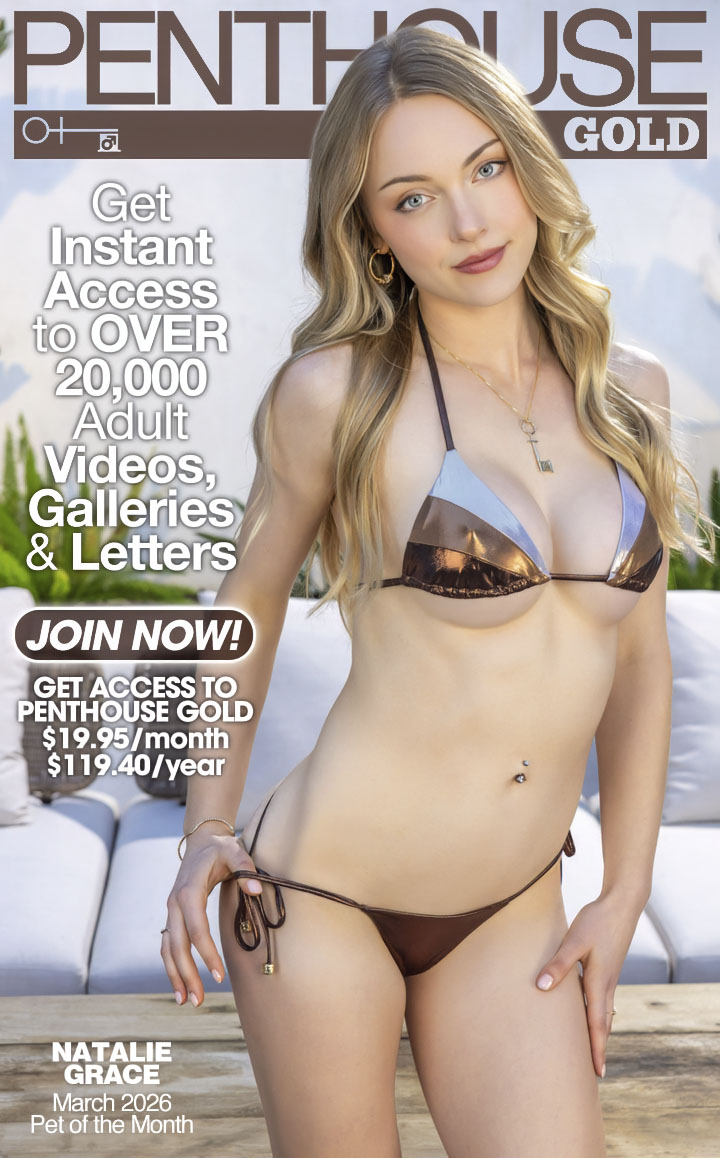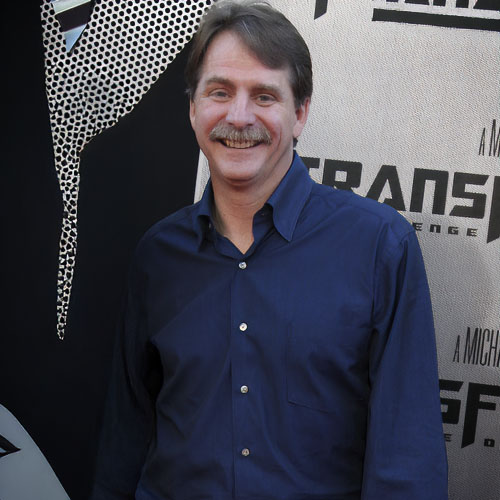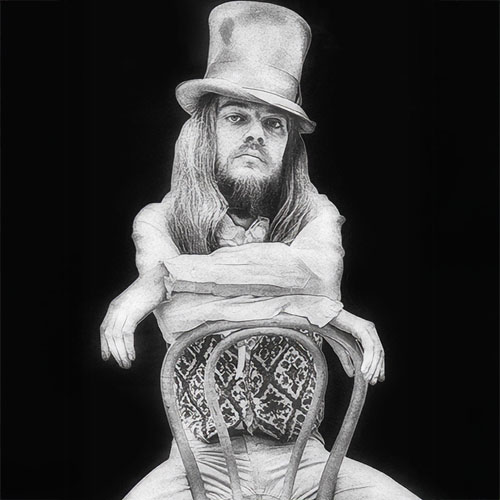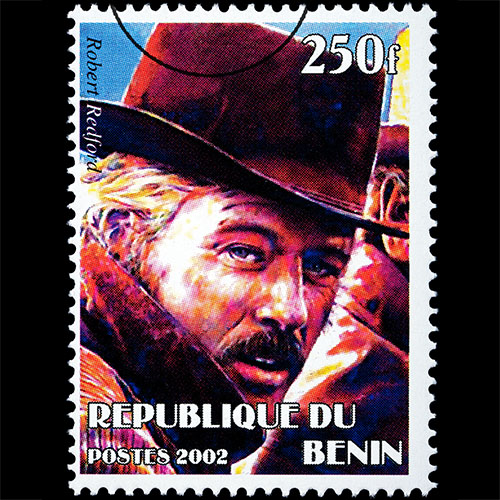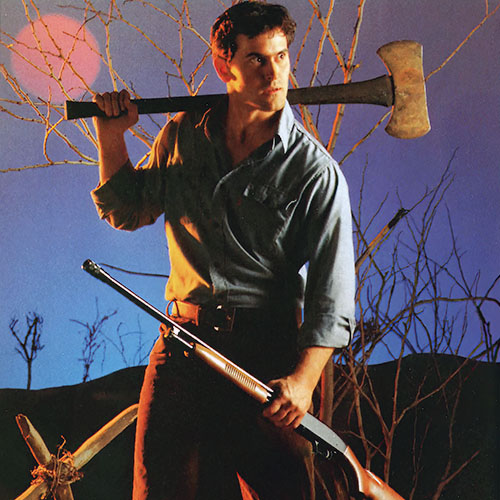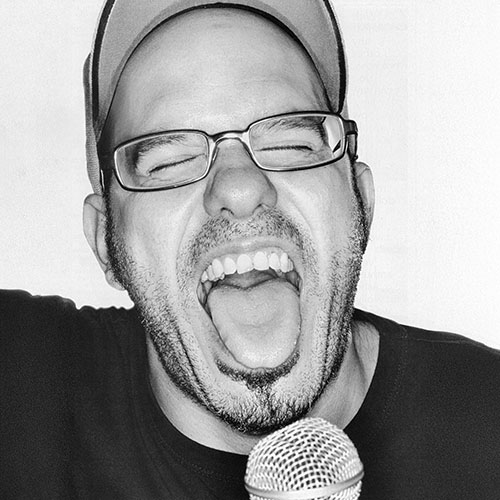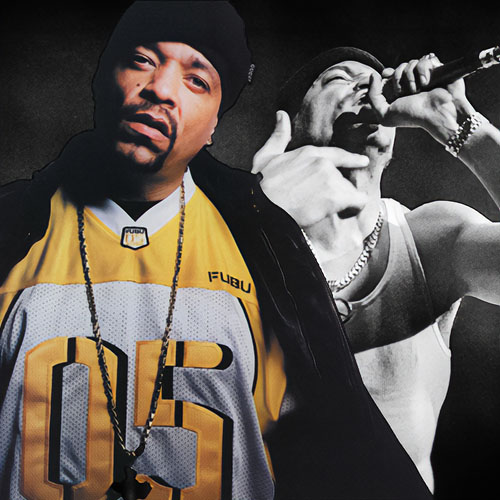“Everything that the press ever attaches to me has a lot of fear and loathing in it, because they don’t get what I’m about. They never will. That’s why I’m talking to Penthouse.”
Roseanne (and some Tom)
Christmas in Salt Lake City, circa 1960. The teacher asks her one Jewish student to stand before the class and explain why she doesn’t believe in Jesus. “I would sing the little song about the dreidel,” recalled Roseanne Barr in her 1989 best-seller My Life as a Woman. “I was the Designated Heathen.” The teacher told Barr to be grateful she didn’t live in a Communist country, where “dissent” wouldn’t be tolerated.
Thirty years later, when Barr sang a little song for the San Diego Padres, she found the treasuries of tolerance wanting. “Disgraceful!” snapped the leader of the Free World, as the brethren of America’s Fourth Estate exploded in simultaneous orgastic rage.
“I don’t know what y’all wanted me to [do],” opined Barr at a press conference addressing l’affaire d’anthem. “Put my head in my hands and start screaming and run off? I’m not a quitter.” No, indeed. Whether she’s serenading an auditorium full of Mormon schoolchildren or a stadium full of angry baseball fans, Roseanne Barr carries on to the bitter end. Because like it or not, Roseanne Barr has learned to thrive in the role of odd woman out.
At a time when lauding the accomplishments of female executives became fashionable, Barr gave a voice to those forgotten sisters who continued to toil inside the home (and the factory and the beauty parlor). She knew firsthand about women who pulled double duty in the kitchen and on the assembly line. And she was damn sure that they cared a lot less about sparkling toilets than the TV commercials implied.
Barr helped create a blue-collar television sitcom that subverted the sentimentalized-slob stereotype perpetuated by so many of its predecessors. At once savage and loving, articulate and crude, the Conners, like most real families, cannot be easily categorized. In addition, Barr and costar John Goodman have fast become television’s sexiest sitcom couple — what Ralph and Alice Kramden might’ve been had they been granted freer rein.
Obviously, her instincts were right on the money -“Roseanne” premiered in October 1988 to the best first-time ratings achieved by an ABC comedy in over six years. In 1989 it broke the five year stranglehold that “The Cosby Show” had had on the No. 1 spot to become, quite simply, America’s favorite TV show. Yet in spite of her phenomenal success, Roseanne Barr is a star that the media just love to hate.
“You don’t get to be as big, fat, and sarcastic as I am without having a lot of shit happen to you,” she says. In My Life as a Woman, Barr paints a family· portrait that at times borders on the surreal. Uncle Luke was convinced that the Coca-Cola Company was trying to make him confess to the Lindbergh baby kidnapping (they were shining bottle caps in his eyes). Her paternal grandfather was, according to her father, an alcoholic, atheist Bolshevik. (He sold holy-water fonts and 3-D pictures of Jesus.)
Barr felt closest to Bobbe Mary, her maternal grandmother. Afternoon idylls of eating and gin-rummy playing were punctuated by Bobbe’s trips to the telephone, where she proceeded to “set straight” any anti-Semitic callers who dared phone the local talk-radio station.
When she was a toddler, Barr took a nasty fall and her facial muscles froze. When she had not healed by the next day, her mother asked the rabbi to pray. When that failed, she enlisted the aid of the Mormon priests and, lo and behold, her daughter was cured. In her autobiography Barr states that her mother took this to be a “sign,” after which the two of them embarked on a curiously schizophrenic religious episode. For the next several years, they “testified” in the Mormon church on some days while continuing to practice Judaism on the others. This went on until, at 16, Barr stumbled upon a description of Bell’s palsy (a paralysis of facial muscles that is often temporary) that explained her “miracle healing.” She celebrated by smoking cigarettes, drinking beer, and begging her boyfriend to have sex with her (being a good Mormon, he declined).
Around that time Barr was struck by a car, cracking her skull on the automobile’s hood ornament. Several months later she “went nuts” and spent nearly a year in psychiatric care at the Utah state hospital. She never finished high school and at 19 left Utah for good. The year was 1971, and she took off for Georgetown, Colorado. After hitchhiking around the country for a while, she married her first husband, Bill Pentland.
Three kids later the couple was living in Denver, and Barr worked part-time as a cocktail hostess to help pay the bills. When patrons passed unseemly remarks, they rapidly discovered that Barr not only gave as good as she got – she gave better. Rather than take offense, they found her hilarious and encouraged her to audition at the local comedy club.
Barr was also frequenting the Woman to Woman Bookstore, run by a feminist collective that held meetings in the basement. She was invited to appear at a feminist coffeehouse and began alternating appearances there with her stints at the comedy club. Although she honed her chops on the comedy-club circuit, it was the coffeehouse that gave Barr the freedom to explore the “women things” that conventional club owners feared would “lose” the men. Slowly but surely, with a little help from her sister Geraldine, a Domestic Goddess was born on a wave of “women things” that would crest at No. 1 in the Neilsens.
Not too many years ago, Roseanne Barr was still living in a 600-foot trailer. It’s the kind of story that America loves: Rosie Average makes good, proving that with talent and chutzpah you can turn your life around, whatever the odds. But that success was followed by a seemingly endless tsunami of bad press – some of which may have been self-inflicted (“Tom and Roseanne Moon World Series Crowd”), much of which was just plain mean-spirited.
First came the tales of strife on the set. Never mind that Bill Cosby jettisoned a few longtime writers with nary a peep from the press. Or that “In the Heat of the Night” star Carroll O’Connor marked his return from bypass surgery by announcing his intention to “get rid of everyone” who defied his creative authority. When Roseanne Barr fires, it’s a federal offense.
At a time when Barr was being advised that the best response was no response at all, her domestic troubles were being reported in breathless detail – her separation from husband Bill Pentland, her romance with writer-comedian Tom Arnold, her daughter Jessica’s problem with alcohol. But the most devastating blow was dealt by a tabloid reporter who, according to Barr, approached her in a hotel room at 2 A.M. and said, “I know where your daughter is.”
Back when she was 18 and unmarried, Barr had given birth to a baby girl and put her up for adoption. Although she had made arrangements for the child to be able to find her upon coming of age (if she wished), Barr chose to keep this part of her life private. Now the threat of imminent tabloid exposure forced a hasty reunion. Barr contacted the teenager, arranging to meet her and her adoptive mother. It would turn out to be one of the best and worst days of her life.
Shortly after their visit began, Barr received word that her fiance, Tom Arnold, was hemorrhaging from the nose – the unfortunate by-product of a three-day cocaine bender. Barr rushed him to the hospital, and their wedding plans were postponed while Arnold cleaned up his act.
Barr and Arnold finally tied the knot early this year. He is straight. Her daughter is sober. She corresponds regularly with the child she’d given up so long ago. Now everything would calm down, right?
Wrong.
“Roseanne Trashes Rented Malibu Manse,” screamed the headlines. (Barr said it was simply normal wear and tear, and that she was working out a settlement with the owner.) “Roseanne’s Ex Hires Marvin Mitchelson.” (He’s filed a $15 million suit against her.) The Emmy nominations are announced and, once again, Barr is overlooked. There was the national anthem incident, a tempest in a teapot that was finally forced off the front pages by the invasion of Kuwait. Roseanne-bashing is raised to new heights as the woman we love for being funny and honest and a little bit rude is chastised for being funny and honest and a little bit rude. The Designated Heathen is propped up and struck down and propped up again. As long as she stays funny, she survives.
And the beat goes on. The barrage continues. But this time, Roseanne Barr is talking back.
Have Americans lost their sense of humor?
Barr: Some of them have. Or maybe it’s that their sense of humor isn’t mine and those people probably laugh at the things that disgust me. It didn’t help that I was a woman making fun of men on that ball field, spitting and grabbing my crotch in a male gesture. Men, by and large, don’t have a real good sense of humor about themselves. And a lot of people just don’t get parody. A lot of people only get dick jokes.
Did you hear what Bette Midler said about me? She said, “The business has been taken over by low-life sluts.” What’s up her ass? That really pissed me off. I think it’s because she’s Miss Disney now. The only thing I’ve ever said to her is, “Hi. I’m a fan.”
Well, now I’m going to sing her “Wind Beneath My Wings” song in my stage show. I’ve got a big cardboard cutout of Bette and I’m gonna sing it right to her! But I won’t say anything about her because, after all, she and the other women comics of her generation; Martha Raye, Phyllis Diller, Marjorie Main – they paved the road for me!
Are you a baseball fan, by the way?
Barr: Yeah! I like baseball. All the time I’m wondering why this all happened. When I went there to sing, there were wall-to-wall reporters and cameras, and it was like they were waiting for me to fuck up. I think a hipper crowd would have helped me out.
I suppose I should just save my act for people who paid to see me. And I will do that from now on!
You’re the star of America’s favorite TV show, yet you’re put down on an almost daily basis. Why?
Barr: I have always had intense, intense problems with the press. I think [the anthem incident] was a press thing, a media thing blown all out of proportion. And maybe the press does represent a part of the mass unconscious that finds me, and other women with some kind of power, largely frightening. So it was just that [fear] magnified to the 50 millionth degree.
Everything that the press ever attaches to me has a lot of fear and loathing in it, because they don’t get what I’m about. They never will. That’s why I’m talking to Penthouse. At least you write some shit, there’s substance. It’s controversial, another point of view.
Some reports say you’ve promised to “tone down” your behavior. Is that true?
Barr: Absolutely not! I said I was sorry I offended anybody, but they wanted me to sit there and grovel. It’s like whenever I have a crisis, these “experts” really come out with the “you should’ves.” Well, hell, you know, I’m an artist and I don’t give a shit!
A lot of people – network people, publicity people – they all want to say that I’ve promised to tone myself down. They each want to be “the man that tamed Roseanne Barr.” And I’ll tell you what – none of ’em’s ever gonna do it! I’ll see their asses fired first!
The one thing that really helped me is that demographically, I’ve gotten a lot more young male and teenage boy fans. They loved what I did at the baseball game! I probably lost some old, grumpy fans, but that’s okay. I’ll trade them old buggers for some younger, hipper fans any day!
You were also criticized recently by a writer who said that your remarks about Arsenio Hall being “the first black nerd” were “racially nasty.”
Barr: That’s not what I said. I said. “It’s not often that we get to see a black nerd.” Which is true, because you just think of nerds as generally being white, and it’s totally refreshing to finally get to see one of color. I see that as a statement of fact rather than a put-down, and I’m really offended that any critic would put a racist connotation to it. That’s loathsome. It’s always a white person who says that.
It had gotten to the point where I turned on the TV every night and he was riffing on the parts of my body, which isn’t at all funny. If it was funny, I wouldn’t take offense to it. I mean, of course I can take a fat joke, I’m a comedian. But one day I turned it on, and this was his joke: “Imagine Roseanne Barr at night when she takes her bra off and all the fat just falls out. Can you picture that?” Well, that isn’t funny. It’s like so what? I’m fat – get over it! He should work on the idea of punch lines. It just didn’t sit right. I thought it was mean-spirited and stupid. So the idea is, you called me fat, I’ll put you in my act. Don’t fuck with me.
When “Roseanne” began its first season, how much creative control were you promised?
Barr: They told me it was a collaboration. And it was, at first. Then I saw that an executive producer, Matt Williams, got this whole “Created by” credit, and that really pissed me off. Then they got me “Based on a character created by Roseanne Barr” at the end, but I wanted it to say “Based on characters created by Roseanne Barr,” because I did create every character. They’re all from my family, and the husband was based on Tom Arnold, who was my friend at the time.
I heard that one disgruntled staff member tried to sabotage me by telling the Writers Guild that I was totally out of control, demanding credit for other people’s work.
What exactly is your involvement with the show now, and how has it changed?
Barr: It’s the same as it’s been all along, but with less resistance. and I have a producer credit now. I’m not this megalomaniac who has to be involved in every aspect of the show, but I was always a writer on the show, and I always was pretty much a producer, too, but I didn’t take the credits. I figured, Why do that? But now I understand that in this town, you take the credits.
We used to get first drafts of the script on Mondays, then we’d film on Friday of that same week. What was happening was that I’d end up revising the script and taping the show all in the same week, which I thought made not for a good show. Sometimes you’re so bone-dry after working that hard. I talked to them about having this setup where we would meet every Wednesday to discuss the following week’s script. I thought I had put together something very militaristic that would work out very well.
Sounds reasonable.
Barr: It is very reasonable.
And this is what caused all the trouble?
Barr: Yes. Jeff Harris, another executive producer, was very, very upset because I was an actress and a writer. Like I’ve said, I don’t think he’d ever been in a room with a woman who didn’t serve him coffee.
Is this the guy who placed the ad in Daily Variety saying he planned to “vacation in the relative peace and quiet of Beirut”?
Barr: Uh-huh, yeah. That funny motherfucker. I think he thought his job there was to placate me. But there were a lot of power plays over the years that really weren’t mine. A senior staff member once confronted a writer and said, “I question your loyalty. Whose side are you on? Hers or ours?” It just was sick, insane and sick, and I can’t really make any sense of it.
But I made my mistakes, too.
Like what?
Barr: Being a mom, I tended to take a lot of shit from people. Rather than asserting myself all along, I’d let it build, then have a big explosion. Now I say, “Well, wait a minute, I’m disagreeing here.” You know, all that assertive, business-type shit that I didn’t know how to do before in my life or on the set.
Penthouse: It’s been said that because of the way they’ve been raised, women have trouble learning how to delegate, how to say no, how to fire people.
Barr: Oh, I felt all that. That’s probably just because it takes a while to learn all that kind of stuff. As for getting rid of people, if I was to do it now, I would’ve gotten rid of these people way sooner. I wouldn’t let them fuck with me for six or seven months, thinking, “Well, maybe it’s my fault, or maybe I haven’t been clear, or maybe I haven’t been this or that.” I would just go, “I’m sorry, I can’t work with you. Bye.”
And I wouldn’t explain over and over to people why I wanted things done, which is probably something that women do, too. No, I would come in and go, “This is what I need you to do, please have it done by tonight.”
Now, instead of saying “I need you to understand that I’m right, that I have a point,” I go, “Look, I’m your fucking boss. I want this.” And that’s really hard, so I must be like every other woman that’s in every other business, but I had to learn it in front of the whole country.
Why have people said that you’re difficult to work with?
Barr: I imagine I probably was tough to deal with. I’m not blameless. But it’s hard to be lied to over and over. I’m a real trusting person. It was hard to see my work and my contribution degraded week after week. They would say, “You know we want your input.” What I was doing was hugely more important than “input.” I was shaping scripts, writing lines, changing scenes. But they made my contribution seem smaller and cuter.
On Thursdays I would go in and scream, “Where is the shit I gave you on Monday?” And they’d say, “Well, we didn’t think it would work.” And I’d go, “Well, do you think this shit is funnier?” And I would always win, because their shit was never funnier. And they’d go, “We just didn’t think your character would ever do this.” Well, I am “she.” Ask me!
How was your Roseanne Conner character misinterpreted?
Barr: I felt that her character was two parts of me. There’s a real fragile underside that you cover up with all the sarcasm. I felt like they never showed any vulnerability. I told them, “I’m like fucking Alf. . . . I’m a cartoon!” I had no fragility. I can’t be right every week. I’m not the ballbusting, castrating bitch.
I’d have to remind them that this is a mother – “Would your mother do that?” They just didn’t know how to write for women. Then in the second season, after I had the big talk about the fragility underneath, they came back and wrote me like June Cleaver. There was no edge. And it still wasn’t that funny.
So it went from one extreme to the other?
Barr: Yeah, and they kept going, “Give us time, we need time to find it.” But it was like, “What’s hard to get? You open the fucking door and there I am, there’s my character right there! What’s hard to get?”
Or they’d take situations I’d written for my character and change them into situations for John Goodman’s character, with me going, “and then what happened, honey?”
And then they kept softening John’s character, making him act like a boy. There was no man-woman shit happening – he’s sweet and I’m a bitch. That just isn’t the balance I wanted, which was regular husband-and-wife shit, like “The Honeymooners.” I think that TV writers just do that: It just happens. It’s like some unconscious robot thing, until everybody is in the fourth grade.
A newspaper columnist wondered why – if your show is so immensely popular – the Democratic party can’t muster enough blue-collar votes to elect a national candidate?
Barr: I read that, too, and I’ve wondered myself. The Democratic party needs to pull itself together, because it’s farther away from the people than the Republican party appears to be, and that’s why George Bush is president. They just haven’t gotten it yet.
What are they doing wrong?
Barr: They don’t have enough women in there. They don’t have enough people of color in any positions. It’s the same tired old guard, pretending that they’re concerned about women and people of color.
That’s even more hypocritical than George Bush. They’re the kind of people who say, “I was speaking to my maid, and she said … “ Well, get out of the way and let’s hear your maid.
I hate liberals. Everyone hates them. They are so phony. I’d rather deal with the conservatives, to whom I can say, “I totally disagree.” The liberals are in there fudging every issue, selling out this group of people to make points with that group of people. Nobody likes that. We need something more clear-cut. It’s the nineties. You gotta have opinions. Liberalism and all that stuff has been dead for a long time. They imagine that everyone winds up joining hands and coming together in the end, and that’s very false.
Now that you’ve got so many new staff members in place, what kind of changes should we expect to see on the show this season?
Barr: It’s going to be funnier and more edgy. There will be more fights between Dan and Roseanne. More man-woman sex stuff-verbal sex, battle sex, because I think that stuff is really, really sexy.
Do you think people have good sex after a good fight?
Barr: Well, of course you dol That’s why you fight! It’s like, “Oh Christ, what did he do that I can say pissed me off?” I think a lot of couples do that. I’ll pick fights with Tom a lot of times for that. Anger is great passion. We always fight. We have great, intense fights.
What kind of fights lead to the best sex?
Barr: The best fights are when he’s trying to get me to calm down. Then I get more and more mean, and more and more vicious. I’ll slug him and pound on him and stuff like that. We had a huge fight in Las Vegas, and that was the best sex. We had a huge fight, then I was pounding on him and he ripped my shirt off-he can throw me around pretty good. I like that. He just, like, throws me down and, you know, that’s the best. I never thought I would say that, but it is.
In the right circumstances, with the right person?
Barr: Oh, not anything cruel or mean. You’re in control. It’s not like some guy with really horrible bad breath, covered with piss. It’s rarely that [laughs]. No, but I mean just real passionate – forceful, rather than forced. And sometimes, to do that to him, for you to take control and push him around is really awesome. He likes that. Guys like that.
Penthouse: In your autobiography you said you’d like to eat Mel Gibson “literally and figuratively.” If men were food, who else would you want to eat?
Barr: I mostly like character actors, guys who seem like real cavemen. I like Tommy Lee Jones – I think he’s awesome manly. I like guys like that, with kind of fucked-up faces, but some smoldering shit in their eyes.
Penthouse: You don’t like pretty boys?
Barr: No, they’re wimpy. I like a guy who looks like he’s been messed up and pushed around a lot. Who looks real strong. Those guys are the best, because underneath they’re so soft and so sweet. Not like those guys who are wimpy on the outside and underneath is a horrible, cruel, asshole core. You know that if a guy’s, like, really, really perfect and good-looking, there’s probably not much to him. I like a guy who looks like he took a grenade in the face.
It’s just like people, everyday-looking people. They might have intensely great sex, whereas the other people we get programmed to think about probably never do-because they’re too busy waxing their legs. I think regular people sex is really sexy, not like the movie star-type sex. Because then you have to start thinking about, “I wonder what they do? Do they tie each other up? What would they do? How would they do it?” Whereas with the movie-star type people, you’d pretty much know they do it in front of a mirror.
Penthouse: Do you think you’re sexy?
Barr: Well, I’m doing this in Penthouse because I’ve never really done anything for that audience. And I’ve realized more and more that I’ve got a lot of male fans. That, plus the fact that I’m remarried, I feel like I’m about the sexiest thing. I know that I am.
Unfortunately, people always take away from fat women’s sexuality, rather than just leaving it alone. I used to have this line in my act – my husband’ll kill me for this – one time way back in my stand-up days, a heckler screamed out, “You’re fat’” and I said, “Yeah, I am fat, but you’d crawl on your belly to fuck me!”
Do you get love letters from fans?
Barr: Yeah. The best was this one guy who, when we first started out, wrote me from prison. They have this file where they give maniac letters to the cops, and this guy wrote a letter asking me to send him a picture of me in a bathing suit or nude. He said he thought I was really hot and all that shit. They put it in the maniac file. [Laughs]
How did you and Tom Arnold meet?
Barr: We met in Minneapolis in ’83. He was opening for me. I said, “I hope you don’t do any pig shit,” ’cause that was really hard to follow in those days. It’s way easier now, but it was hard for women comics back then. A lot of men would go up and tell pussy jokes just before you came out, which really handicapped you in front of the audience. It would be like bringing up a black comic after telling very offensive stereotype jokes about blacks, which they never did because they had that much intelligence, but they always did it about women.
So I’d always go, “You don’t do any pig shit, do you?” just to freak the guy out, because the headliner could usually get rid of the other act. When I asked Tom, he said, “No, I just call women ’hosebags’ and ’come dumpsters’ and stuff like that. But that’s okay, isn’t it?” I just started laughing. I thought it was real ballsy! We became buddies. I asked him to write me some jokes, and when I got the series, I told him, “Now I’m gonna pay you back, because now you’re going to come out here and write on my show.”
Now that you’re married, how do you plan to keep the romance alive?
Barr: I try and hit him when he’s not looking, and he gets me when I’m not looking. It’s just fun, like being a kid. And this is a bizarre thing to say, coming from me, because it’s a bizarre thing to find in myself, but I like that he’s such a man, you know?
What do you mean by that?
Barr: On the show, they started taking my ideas so much better when Tom was there because they knew he could beat them up. It’s true. After all the stuff I did – proving myself, killing myself, doing extra work in the end, the only thing that mattered was that I had a guy who could beat the shit out of any of them. And man, did they start listening!
You really think that helped get their attention?
Barr: I do think that’s the only thing that changed anything. Tom’s there, and that makes it easier for me. It just feels like the total, natural way that it should be for me, anyway. I like so much that he can pick somebody up and throw them through a wall. It doesn’t even bruise him – and I think that’s awesome. He’s this strong man who can lift me up. [As if on cue, the strong man himself strolls into the room, joining the conversation for a few minutes.]
You’re obviously very protective of your wife.
Arnold: Yeah, that’s what I do. I protect her and the kids, and I feel good about it. It’s a good role for me. It’s the reason men were put on this planet. It’s a real basic, caveman kind of thing.
Barr: Our relationship’s intellectual, too. We get along real good.
Arnold: I think I’m sensitive, but it’s impossible to be as sensitive as a woman about certain things. You can spend your whole life trying to figure out women, but you just can’t do it.
Barr: Like when I get the PMS thing.
Arnold: Two days a month she has this bad PM.S., and I get up at 4:30 in the morning and pack my bags and start heading out the door and she says, “Where you going, honey?” And I say, “Oh, I’m going to the gym.” “But they don’t open till nine.” “That’s okay, I’ll get there early.”
What are the signs that it’s time to go to the gym at 4 30 AM.?
Arnold: When I say, “Boy, it’s a nice day,” and she says, “What do you mean by that? What are you really saying, Tom?” When she acts lovey-dovey, then acts like a child, then acts like a terrorist. [On that note, Arnold leaves.]
Please tell our readers what it’s really like to be a housewife.
Barr: Well, once I was vacuuming, wearing nothing but an apron, and my pert breasts were peeking out of the sides.
Seriously.
Barr: It’s a really cool thing, but you don’t get paid for it. You don’t get money, credit, a retirement plan – that’s the bad part of it. The other part is great ’cause the thing you most want to do in your heart – not all women, but a lot of us; most of us, probably – is to raise your kids, make a nest, and take care of your house. That’s biologically what we’re supposed to do – that’s the mother thing. If they paid women to stay home, a lot more would.
In your book you said that you once baby-sat for people who had men’s magazines in the house.
Barr: Yeah And they had magazines with pictures of naked people playing volleyball, too!
How do you feel about pornography?
Barr: I think pretty much everything’s pornographic, and I don’t know that one’s worse than another. Pretty much everything in show business is pornographic. Pretty much all the press is. I don’t see any difference between Time and the Weekly World News, because it’s always the same slant on everything. I think that there is total censorship in this country – every point of view that doesn’t agree with the middle point of view is censored. And the fact that they go out there and talk about 2 Live Crew or Andrew “Dice” Clay – big deal. Who cares? It’s like flag-burning, a total non-issue. It’s a red herring. The fact of it is that our civil rights are being worn down daily.
In what way?
Barr: Well, you never hear a real radical woman’s point of view. If you do, she’s got blond hair, and she’s saying “they” rather than “we.” You never hear that. It’s the exclusion of women’s and minorities’ opinions. The media will always stick to the middle. And occasionally middle-left on PBS.
They talk about the sixties being a time of revolution, but I don’t think it really was that. It was a time when there were various points of view being offered to the American public. That’s why they called it revolutionary. But now the media just keeps presenting the status quo over and over. Never challenges it, never questions it. We’d rather watch people joke about tits.
You mentioned Andrew “Dice” Clay. What do you think about him?
Barr: If you look at the things he says, they aren’t that shocking because — to me — they’re what every guy says on every street corner. Boring. Bring on the next asshole.
If I worked on “Saturday Night Live,” I would’ve demanded my ten-minute rebuttal, that’s all. And I would’ve done material that would’ve buried him. Because that’s the only way you can ever do it, by being funnier than they are.
What kind of material would you have done?
Barr: I would’ve done his material. I probably would’ve dressed up like him and done an impersonation of him. We were pretty good friends. I used to stand in the back of the Comedy Store during his act, and when he’d do that “foreigners” kind of shit I’d go, “Isn’t your name really Andrew Silverstein?” And he’d go, “Here’s to you sucking my dick.” He knew it was me!
But his jokes eventually got more poo-poo-ish. ’Cause you know that’s all the status quo can do eventually is just talk about shit. But other points of view can get more and more cerebral all the time-more sophisticated and infinitely more dangerous than shit jokes.
Are you still friendly with him?
Barr: Yeah. I think he’s gonna be a big movie star. He’s a really good actor. He has great presence. I think his choice of material is real juvenile, but there is something about him as an actor.
Comics pretty much disgust me these days. I’m sure I disgust them, too! I suppose it’s just the way us older comics are-’’ Ah, these young folks!” I just like somebody to go in there and really rip it up. Like Sam Kinison. He was so dangerously scary, that was really cool.
Is there anything that you wouldn’t joke about?
Barr: No, there’s nothing I wouldn’t joke about, but it would be the way I joked about it. You can tell jokes about ·anything – just remember it’s all about point of view. You can do it in a way that doesn’t make you a perpetrator. If you’re gonna do a joke about racism, don’t have it be on the black folks. Make fun of the system that creates racism. That’s on the highest level. That’s humorous.
Your movie She-Devil didn’t get very good reviews. Did you enjoy making it at least?
Barr: It was really, really degrading. Now, with hindsight, I really think the director, Susan Seide/man, wanted me in the movie because I was fat. I think that’s about all she saw. Which is really, really depressing. My sister saw that she had the camera on my ass during a whole scene. And I called the director aside and said, “What are you doing here? It’s really degrading.” And she went, “No, no. I’m a fat person, and I wouldn’t do anything blah, blah, blah.” Anyway, I feel like I trusted her, and I shouldn’t have, because she went out of her way to make me look really, really gross and stupid. There were a lot of shots of my ass and that fucking mole.
You’ve obviously gained a lot of confidence since then. How do you know when you’re really powerful in LA?
Barr: It all comes from within. Nobody gives it to you. If you think you have power – even if you’re a waitress in a hot dog stand – you’ll have power. Of course, the people out here … if there’s the possibility that they could make a dollar and get some exposure from jumping into piles of shit – if somebody can convince somebody out here that it’s the wave of the future, the new trend – then it wouldn’t matter that they were going to smell like shit.
What disgusts me [about it] also draws me, ‘cause I think that great things can happen here, too. I think Hollywood is like a microcosm of the American dream. It’s like assuming power. I mean, the fact that I came out of where I came out of, and I’m talking to the heads of networks and going, “Well, wait a minute.” That’s just awesome!
There are some really, really good people here: Everybody says you just have to wade through the assholes to get to them. I feel like I have gotten to them. But then maybe that’s because I’ve changed. Maybe I’m just seeing good things in people better than I did before. Maybe that’s it. A lot of the people I like now are people I used to not like. I’ve gone through a real profound change being remarried and going through what we’ve gone through to be together, [as well as] what my kids have been through.
What advice would you give people who want to make a career change and think there’s no way out?
Barr: The thing is so much in your head. I hope that when people see what happened to me, they go, “Wow, if she can do it, I can do it.” Because you really can. But the hard thing is that you have to be a little bit crazy to believe that you can. Nothing’s ever going to happen unless you believe that it can. Nothing’s going to happen without the crazy thought first. You’re just not going to go walking down the street and fall into something. You have to believe in yourself and have a plan- and be willing to give up everything for it. Because I think, in the end, you do give up everything for it.
What have you given up?
Barr: Privacy. I loved to go shopping. I have seven minutes – I have it calculated – to go in some place and get out before people start surrounding me. I love to go looking at everything – junk stores, good stores, clothes, shoes, makeup.
Can’t you wear a disguise?
Barr: Once I wore a blond wig and a cowboy hat and sunglasses. I think they get a look at my body and that’s it. There’s no way to disguise my body. I think that there’s only one body like this, and it’s very noticeable. I miss that [the shopping]. But Christ, look at the other stuff. Look where I get to live!
Now that you don’t have to worry about paying the rent, what keeps you up at night?
Barr: The same personal stuff that keeps everybody up. My kids, my career – that really keeps me up. Trying to outthink everybody, [which is] probably just a female thing. We do that. It’s just an awful way to live. We totally drive ourselves crazy. Men don’t seem to do that on the grand scale that we do. One thing I really admire about men is the way they make decisions. They live their lives. They don’t ponder and cry and stay up nights for weeks and months and years.
If this all ended, what would you miss the most?
Barr: I would miss stuff like this interview, because I just love to read what I say in print. It’s just awesome to think that somebody really cares what you think about anything! I would hate that nobody cared anymore.
There will be a time when it’ll happen – and not too long from now – and then I’ll be able to go shopping again, and it’ll be cool. Whatever happens, whatever will change in my life, one thing I’ve learned is that I’ll be able to take care of myself and I’ll be okay. I know that now. And that’s a really good feeling. Maybe I’ll go to Paris and start writing poems. I’ll always find an adventure.












